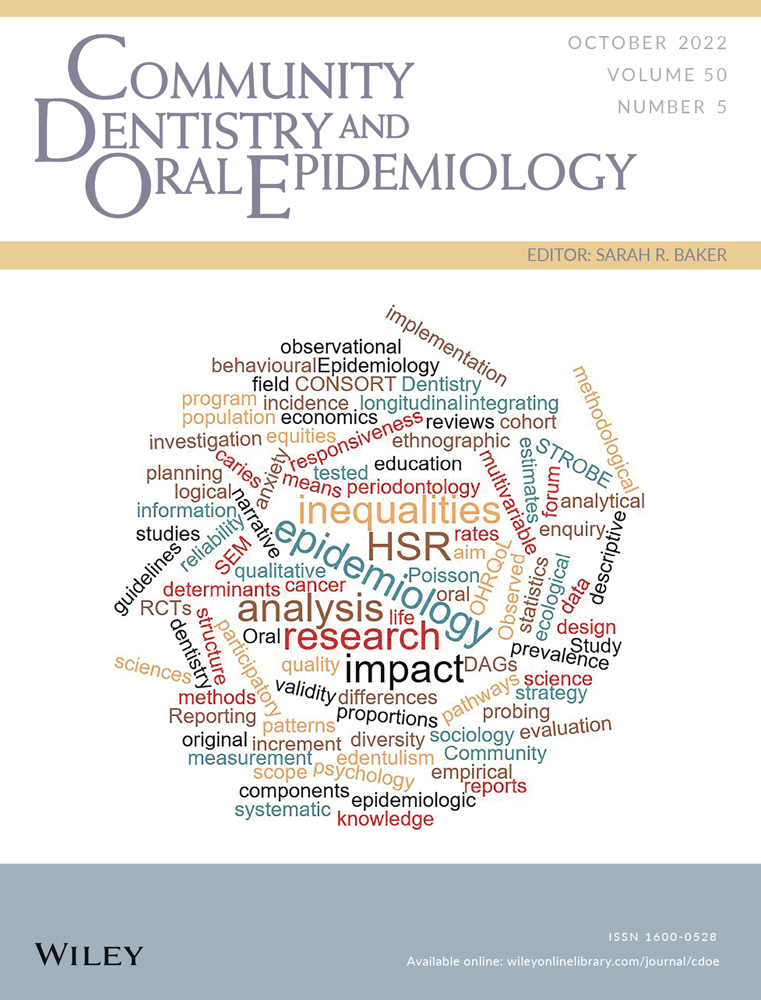Association between sugary drinks consumption and dental caries incidence among Taiwanese schoolchildren with mixed dentition
Abstract
Objectives
Dental caries is a multifactorial disease, and a sugary diet can generate an acidic plaque environment that advances its development. However, the specific effect of sugary drinks on the subsequent oral health of schoolchildren with mixed dentition is unclear. In this study, we investigated the association between the consumption of sugary drinks and 1 year incidence rate of caries in permanent teeth among Taiwanese schoolchildren with mixed dentition.
Methods
A longitudinal 1 year follow-up study was conducted among Taiwanese schoolchildren aged 8-9 years. A questionnaire collected information regarding the parents’ oral health status and their children's demographic background, oral health-related behaviours and consumption habits of sugary drinks, including handmade drinks (specifically bubble tea and pearl milk tea) and carbonated drinks. Dental caries was recorded through standardized oral examinations. The number of dental services received was retrieved from the Taiwan National Health Insurance Research Database. Multivariate Cox proportional hazards models and zero-inflated negative binomial models were used to estimate the association between the consumption of sugary drinks and the incidence rate of caries in permanent teeth after 1 year.
Results
The study involved 494 children. During the 1 year follow-up period, 117 children developed new dental caries in their permanent teeth, yielding a caries incidence rate of 0.183 per person-year. After adjustments for confounding factors, children who preferred having sugar-rich beverages were associated with having a 4.3 times higher (95% confidence interval [CI] = 1.2-15.7) risk of developing caries than did those who preferred nonsugary drinks (P < .05). Additionally, children who often consumed handmade drinks were associated with having a 1.7 times higher (95% CI = 1.1-2.9) risk of developing caries than those who seldom consumed (P < .05).
Conclusions
The findings suggest that the consumption of sugary drinks during the mixed dentition stage might be a major etiological factor for caries in permanent teeth. These findings could be valuable to paediatricians, dentists, nutritionists and policymakers.
CONFLICTS OF INTEREST
The authors declare no potential conflict of interest with respect to the publication of this article.
Open Research
DATA AVAILABILITY STATEMENT
The data that support the findings of this study are available from the corresponding author upon reasonable request.




